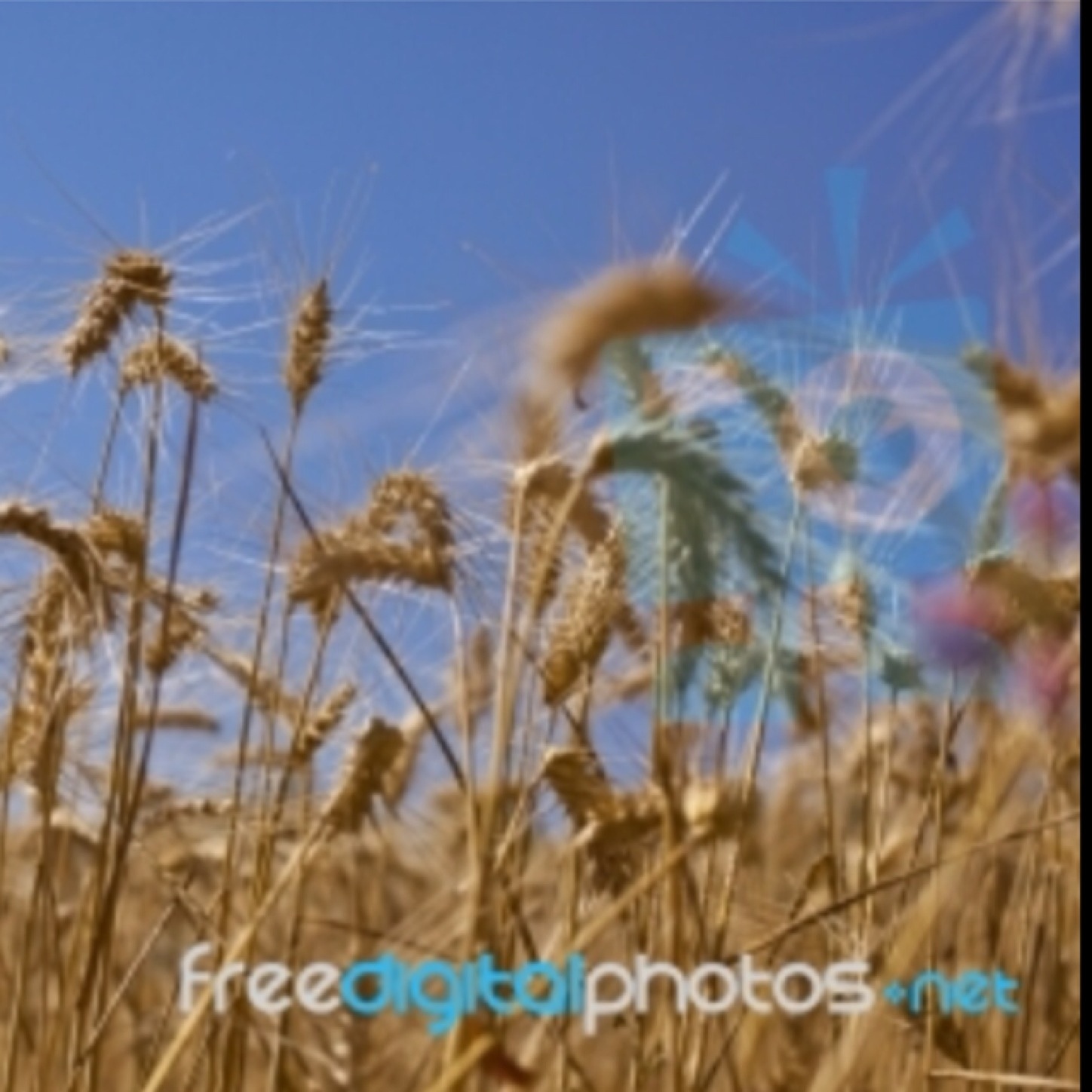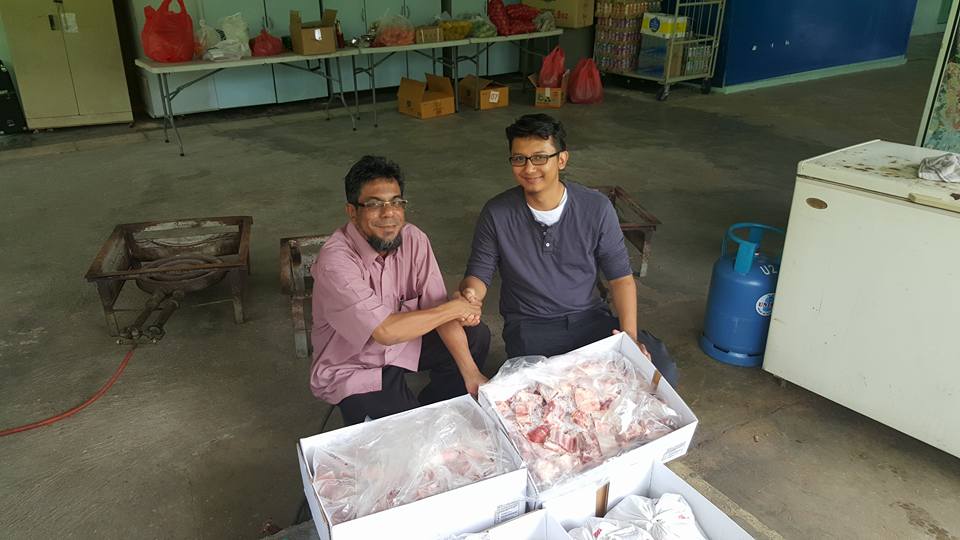This article has been republished with permission from www.halal-u.com, the first ever Syariah compliant investment news portal.
Once there lived an ‘alim (a learned scholar) in one of the Middle Eastern nations. The staple food of his community was wheat. Every owner of land within the territory grew wheat.
Just as the season of harvesting arrived, locusts invaded the territory. One will never know how much loss one might incur until one’s plantation gets invaded by locusts! Each and every plantation owner became devastated. They all marched to the house of this ‘alim to break the unfortunate news to him.
Upon reaching his lodge, one of them exclaimed, “Ya Habib, haven’t you heard of the news that our wheat plantations have been attacked by locusts?”
The learned scholar convincingly replied with a gentle smile “By the Grace of Allah, my plantation has been spared!”
With much disbelieve, the plantation owners demanded that the learned scholar prove his wheat fields were not affected by the locusts. So they marched to the wheat plantations belonging to the ‘alim. As they arrived, everyone present was astounded by the reality. Not a single stem of wheat in this particular plantation was destroyed!
“Ya Habib, this is amazing! How do you explain this unique phenomenon?” enquired a man among the crowd.
Taking out a small book out of his jellabah (robe) and pointing to a particular page, the learned scholar humbly replied, “Here you go. Here is proof of the calculations I’ve meticulously adhere for my zakat obligation. Verily, I’ve allocated the exact amount of zakat for this year and the years before it.”
What is Zakat?
The Arabic word “zakat” means “baraqah”, “multiplicity”, “fertility”, “purity” and “cleanliness.” It also means “growth.” The third pillar of Islam after Salah (prayers), it mandates every able Muslim to pay dues on his or her wealth. [1]
“And in all their wealth and possessions (was remembered) the right of the (needy,) him who asked, and him who (for some reason) was prevented (from asking).” (Surah Adh Dhariyat: Verse 19)
There is the zakat fitrah which has to be paid during Ramadan just before the Eid ul Fitr prayers, and there’s zakat on wealth. Every able Muslim is required to give out 2.5% of his or her wealth to the needy, once his wealth goes beyond its minimum amount (nisab) and if he’s had it for a certain period of time (haul). Every able Muslim is obligated to pay zakat on his savings, shares, gold, pension fund and his business. [2]
From the story of the ‘alim above, it can be deduced that zakat requires every Muslim to be absolutely rigorous with the management of his wealth and finances. After all, all resources belong to God and a human being is only entrusted with His resources. It is only with meticulous record-keeping and management that one knows how much zakat is due and when it is time to discharge the zakat.
The zakat institution is one of the important cornerstones of Islam’s socio-economic justice. [3] Its importance could be seen in the fact that its injunction always comes with the injunction of prayer in the Quran.
“And be steadfast in prayer; practice regular zakat; and bow down your heads with those who bow down (in worship).” (Al Baqarah Verse 43)
According to IDB’s discussion paper on Zakat, another literal meaning of zakat is “growth.” [4 ] When an individual pays his zakat, he progresses spiritually in the eyes of Allah, but he’s also participated in the redistribution of income from the haves to the haves-not, as Allah has specified the groups eligible to receive zakat.
“Alms are for the poor and for the needy, and those employed to administer the (funds); for those whose hearts have been (recently) reconciled to (Truth); for those in bondage and in debt; for those who strive in the cause of Allah; and for the wayfarer: (thus is it) ordained by Allah, and Allah is full of knowledge and wisdom.” (Surah At-Taubah: 60).
“…so that wealth does not circulate only among your rich.” (Surah Al Hashr: Verse 7)
With the poor’s propensity to consume higher than the rich, zakat will contribute to the real growth in the economy.
Zafar Sareshwala, CEO of brokerage Parsoli Corporation in one of his articles said: “ Income support provided to the poor and needy would result in a measured increase of the money supply in the economy causing upward shift in demand for goods and services. To support this upward shift in the demand for basic necessities of life such as food, clothing, shelter etc., the production facilities would gradually expand and begin to absorb the idle capital. To support the increased production, the economy would generate more jobs and new employment opportunities. This added employment in turn would generate more demand for goods and services, more room for additional investments and finally, the growth cycle.”[5]
In its discussion paper, the IDB said the Zakat institution has many positive impacts on the economy. In addition to economic growth, zakat will lead to efficient allocation of resources, re-distribution of income and wealth from the haves to the have-nots, eradication of poverty, social security and stability.
Below is the summary of the impact of zakat on the economy, as found on IDB’s Discussion Paper No. 11. [6]
• Zakat and Investment
Zakat is an incentive to invest. By its nature zakat is a penalty on idle resources – the idle resources will be eaten up by zakat in due course. The owner of the wealth will have to pay zakat every year which will reduce the size of the wealth year after year, and eventually the wealth will vanish if it doesn’t grow. This is a disincentive to hoard.
Zakat also discourages use of savings for non-income producing assets like jewellery by imposing a carrying cost. This will encourage the rich to invest their resources since they will be exempted from zakat for the entire amount of investment. Investment will continue to take place as long as the investor’s expected net loss does not exceed 2.5%, which is the zakat rate on idle funds. As a result investment will be greater in an Islamic economy.
• Zakat and Income distribution
The institution of zakat redistributes resources from the better-off people of the society to those who are worse-off.
• Zakat and Poverty Eradication
The institution of zakat helps eradicate poverty which leads to untold sufferings and crimes. Poverty could lead to hatred between the rich and poor, social unrest, disputes and even wars. Zakat, on the other hand, will create the sense of love, friendship, and cooperation between the rich and the poor.
According to Mahmoud Awan, the institution of zakat if properly implemented could break the vicious circle of poverty. Its introduction along with the abolition of interest will encourage the rich to invest their wealth, which will increase employment and output, augmented by the multiplier effect.
• Zakat and Social Security System
The institution of Zakat is part of Islam’s social security system. According to Afzal Omar, the first source of security in the Islamic approach is Allah Himself, followed by the individual’s responsibility to make future provisions, and the third is the mutual responsibility to look after each other in time of need in the framework of an extended family. Finally the state is responsible to support the members of the society from the zakat proceeds when they cannot take care of themselves.
• Zakat and Efficient Allocation of Resources
Zakat influences the composition of goods and services produced in the country. It increases consumption and thereby the demand of necessities by its recipients. The production of necessities will increase which will produce a favourable effect on resource allocation in the economy.
* Zakah and economic growth – zakat leads to a healthy circulation of wealth and thus ensures continuous growth and prosperity of an Islamic country.-/-
By Halal-u.com, with contributions from freelance writer Fairuz Aziz.
Sources:
[1]See Abu Al-Hasan Sadeq. IDB Discussion Paper No.11 – A Survey of the Institution of Zakah: Issues, Theories and Administration, page 13
[2] www.muis.gov.sg (information on zakat)
[3] IDB Discussion Paper No.11, page 12.
[4] IDB Discussion Paper No. 11, page 13.
[5] The Institution of Zakat and its Economic Impact on Society, by Zafar Sareshwala, CEO & MD of Parsoli Corporation
[6] IDB Discussion Paper No. 11, page 15.










Let’s encourage applying the zakat principle in growing wealth. Surpluses created from the principal amount can be distributed to the needy. Start a team to do this?